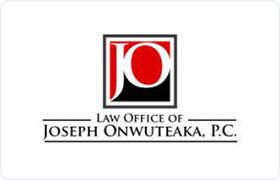Barry Real Estate Other Lawyer, Texas
Sponsored Law Firm
-
 x
x

Click For More Info:
-
Law Office of Joseph Onwuteaka, P.C.
8323 Southwest Fwy Suite 650 Houston, TX 77074» view mapSlip & Fall Accident Fighting Fearlessly For Your Rights
I'm committed to providing experienced and tenacious legal representation. I will fight for the best possible outcome in your case & won't give up, even when things get tough.
800-960-3430
Includes: Commercial Leasing, Commercial Real Estate, Condominiums, Conveyancing, Housing & Urban Development, Premises Liability, Residential Real Estate, Title Insurance
Michael Harold Moe
Estate Planning, International Tax, Family Law, Commercial Real Estate, Business
Status: In Good Standing Licensed: 14 Years
Lowell Olsen Dunn
Commercial Real Estate, Wills, Gay & Lesbian Rights, Banking & Finance
Status: In Good Standing
Frank Bivin Murchison
Commercial Real Estate, Real Estate, Wills, Estate
Status: In Good Standing Licensed: 50 Years
Barbara S. Moe
Commercial Real Estate, Real Estate, Divorce, Business & Trade
Status: In Good Standing
Gregory Eugene Wilhelm
Estate Planning, International Tax, Dispute Resolution, Elder Law, Commercial Real Estate
Status: In Good Standing Licensed: 25 Years
Rachelle J. Crouch
Commercial Real Estate, Divorce, Business & Trade, Credit & Debt
Status: In Good Standing Licensed: 25 Years
W. D. Ralston
Commercial Real Estate, Real Estate, Wills, Estate
Status: In Good Standing Licensed: 50 Years
Joe Ross Massengill
Commercial Real Estate, Family Law, Elder Law, Business & Trade
Status: In Good Standing Licensed: 33 Years
 Joseph Onwuteaka Houston, TX
Joseph Onwuteaka Houston, TX Practice AreasExpertise
Practice AreasExpertise
